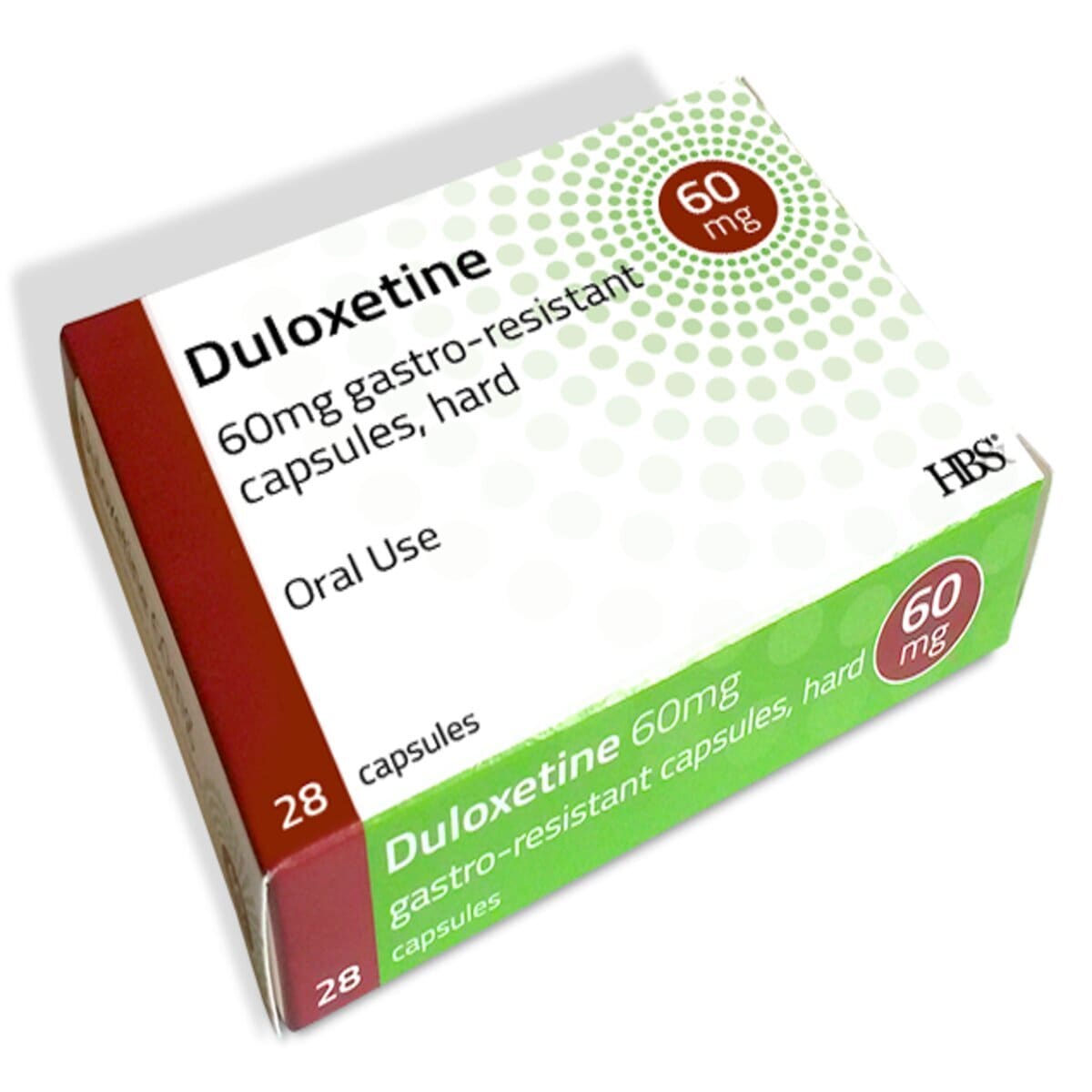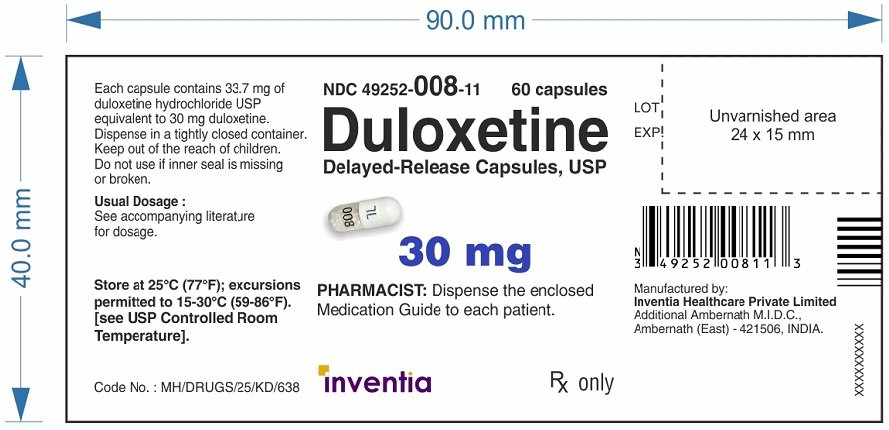Understanding The Duloxetine Recall: What The FDA Risk Means For You
For many, duloxetine, often known by its brand name Cymbalta, has been a significant help in managing a range of conditions. This medication, you see, is used to treat things like depression and anxiety, offering a way for people to feel a bit more balanced. It also helps with nerve pain, which can be truly awful, and even stress urinary incontinence in women. So, it's a medication that covers quite a few bases, offering relief for both mood and nerve-related issues, and that's why it's been so widely prescribed, naturally.
Recently, however, there's been some news that might make you pause if you or someone you know takes this medication. The FDA, which is the agency that watches over our medicines, issued a recall notice for some batches of duloxetine. This wasn't just a small hiccup; they recalled a considerable number of bottles because of a possible risk. It turns out, some of these pills might have contained higher levels of something called nitrosamines, and that, in some respects, is a bit concerning.
This situation can feel pretty unsettling, especially when it involves a medication you rely on. So, what does this recall actually mean for you? We're going to explore the details of this duloxetine recall, the FDA's concerns about potential risks, and most importantly, what steps you can take to stay safe and informed. We'll also touch on some common experiences people have had with duloxetine, just to give you a broader picture, you know.
- Denver Nuggets Vs San Antonio Spurs Matches
- Six Month Wedding Anniversary
- Cost Of Dragon Fruit
- Different Types Of Hair Gel
- Beetlejuice Quotes
Table of Contents
- What is Duloxetine and Why is it Prescribed?
- The FDA's Recall Notice: What Happened?
- Understanding Nitrosamines: The Potential Risk
- What This Means for Patients Taking Duloxetine
- Personal Experiences with Duloxetine
- Staying Informed and Safe
What is Duloxetine and Why is it Prescribed?
Duloxetine is a medication that belongs to a group of drugs often used to help with various health challenges. It's known to be quite effective for certain mood and nerve conditions, and that's why doctors prescribe it. For instance, it's a common choice for people dealing with depression and anxiety, helping to lift some of that heavy feeling, so it's almost a lifeline for many.
Beyond mood, duloxetine also plays a role in managing pain that comes from nerve problems, which is called neuropathic pain. This kind of pain can be really tricky because it stems from issues with nerve signals themselves. There are, you see, many different things that can cause neuropathic pain, and duloxetine is one of the tools doctors use to try and bring some relief, very often.
Interestingly, duloxetine isn't just for mood or nerve pain. It also has a specific use for women experiencing stress urinary incontinence. This is when urine leaks during physical activities like coughing, sneezing, laughing, or even exercising. The brand of duloxetine called Yentreve®, for example, is prescribed specifically for this issue, offering a different kind of help, you know.
- Fantasy Farmer
- Prayers For People Having Surgery
- Angel Cut With Layers
- Actress On Drugs
- What Is Bob Marley Religion
Patients often take this medication in capsule form, sometimes once or twice a day. The dosage can vary, with some people on 60 mg, while others might be on 30 mg or different amounts. It's typically an extended-release drug, meaning it works over a longer period, but that's not always the case for every formulation, apparently.
The FDA's Recall Notice: What Happened?
The big news that has many people talking is the FDA's recent action concerning duloxetine. The agency issued a recall notice for a significant number of bottles of this antidepressant. We're talking about more than 7,000 bottles in one instance, and another time, over 233,000 bottles were recalled, so it's a rather large-scale event.
The main reason for these recalls was the possible presence of high levels of nitrosamines. These are chemical compounds that, when found in certain amounts, can be a concern. The FDA gave this particular recall a high-risk classification, which means they see it as a serious issue that needs immediate attention, very much so.
It's important to know why the FDA asked for this recall. They identified that specific lots of duloxetine might contain these nitrosamines at levels that are considered too high. Nitrosamines, as a matter of fact, are known to be carcinogenic, meaning they could potentially cause cancer over time. This is why the FDA acts swiftly when such a discovery is made, to protect public health, you see.
This isn't the first time a medication has faced a recall over nitrosamine concerns, but it certainly highlights the ongoing vigilance required in drug manufacturing and safety. Millions of capsules were being taken back from pharmacies and shelves because of this potential contamination, which shows the scale of the effort to ensure patient safety, basically.
Understanding Nitrosamines: The Potential Risk
So, what exactly are nitrosamines, and why are they a cause for concern in our medications? Nitrosamines are a group of chemical compounds. They are found in many places around us, like in cured meats, some processed foods, and even in water or air pollution. While they are common, having them in medication, especially at elevated levels, is a different story, you know.
The reason the FDA and other health authorities keep a close eye on nitrosamines in drugs is because some of them have been classified as probable human carcinogens. This means that, based on studies, they have the potential to increase the risk of cancer if a person is exposed to them over a long period. It's a long-term risk, not an immediate one, but still something to address, obviously.
The presence of these compounds in duloxetine lots likely stems from issues during the manufacturing process. It could be related to the raw materials used, the chemical reactions involved in making the drug, or even how the medication is stored. Manufacturers are always working to refine their processes to prevent such contamination, as a matter of fact, and it's a complex task.
When a recall like this happens, it's not usually because a patient will immediately develop cancer from taking a few contaminated pills. Instead, it's a precautionary measure to prevent long-term exposure to a potential carcinogen. The FDA's action reflects a commitment to minimizing any avoidable risks to patient health, which is a good thing, you know.
What This Means for Patients Taking Duloxetine
If you're currently taking duloxetine, hearing about a recall can be quite alarming. The most important message to remember, and this cannot be stressed enough, is that no one should stop taking duloxetine suddenly. Abruptly stopping this medication, like Cymbalta, can lead to very uncomfortable and sometimes severe withdrawal symptoms, so it's really important to talk to a doctor first.
Symptoms of withdrawal can include dizziness, nausea, headaches, and even electrical shock-like sensations. Your doctor is the best person to guide you on how to safely manage your medication, whether that means continuing your current prescription, adjusting your dose, or switching to an alternative. They might suggest a gradual reduction, which is often called tapering, to minimize any unpleasant effects, you know.
For those concerned about the recalled lots, your pharmacy or doctor's office should be able to tell you if your specific prescription was part of the affected batches. The FDA recall notices usually specify lot numbers and expiration dates, so that's how they track it. If your medication is from a recalled lot, your healthcare provider will advise you on the next steps, which might involve getting a new prescription, apparently.
It's always a good idea to discuss any concerns you have about your medication with your doctor. They can provide personalized advice based on your health history and current situation. They can also explain the specific risks, if any, related to your particular prescription, and that's something you really need to hear from a professional, you know.
Personal Experiences with Duloxetine
People who take duloxetine often share a variety of experiences, both positive and challenging. For instance, some individuals have reported experiencing disturbed dreams and nightmares while on the medication. One person mentioned having these issues for about 18 months, finding their memory a bit awful, which is a common side effect for some, you know.
Dosing can also be a significant part of a person's journey with duloxetine. There are stories of doctors switching patients from duloxetine to other medications, like Prozac, and then back again. One person described being on 60 mg of duloxetine for six years, then switching to Prozac for three weeks, and then restarting duloxetine at 30 mg, which shows how individual treatment paths can be, so it's a whole process.
Sometimes, if symptoms seem to worsen several hours after taking duloxetine, a doctor might suggest dividing the dose into two, taking it twice per day. This approach can help manage the medication's effects throughout the day, especially since it's an extended-release drug, but how it works for each person can vary, obviously.
Other reported experiences include severe hand tremors while taking duloxetine, which can be quite distressing. These personal accounts highlight the importance of open communication with your doctor about any side effects you experience, whether common or rare. Learning about these potential effects helps you know what to look out for, as a matter of fact, and when to seek medical advice.
Staying Informed and Safe
When it comes to your health and medications, staying informed is truly your best defense. The FDA provides updates on drug recalls and safety notices, and keeping an eye on these can be very helpful. You can often find this information on their official website, which is a good place to look for reliable news about medication safety, you know. For more general information about drug recalls and safety, you might want to visit a trusted health information site like the FDA's drug recalls page, which can offer broader insights.
Always talk to your pharmacist or doctor if you have any questions about your duloxetine prescription, especially if you're concerned about a recall. They have the most up-to-date information and can check the specific lot number of your medication against the recall list. Remember, they are there to help you understand your treatment and ensure your safety, and that's what they do, very much so.
It's also a good idea to keep track of your medication details, like the dosage and how long you've been taking it. This information is valuable for your healthcare providers, especially if you experience any new or worsening symptoms. Being proactive about your health means being aware and asking questions, which is something we all should do, you know.
We hope this information helps clarify the duloxetine recall and what it might mean for you. Your well-being is what matters most, and having clear, reliable information is a big part of that. To learn more about medication safety on our site, or to explore other health topics that might interest you, feel free to browse around. Always prioritize your health discussions with a trusted medical professional.
- Tom Cruise Veneers
- Amberley Snyder Movies
- Who Does The Voice Of The Geico
- Denver Nuggets Vs San Antonio Spurs Matches
- Goth Asian

Duloxetine 60mg Capsules, 28 Capsules - Asset Pharmacy

Duloxetine Capsules - FDA prescribing information, side effects and uses

Duloxetine Capsules - FDA prescribing information, side effects and uses